British politicians: Trump is undermining global work on LGBT rights
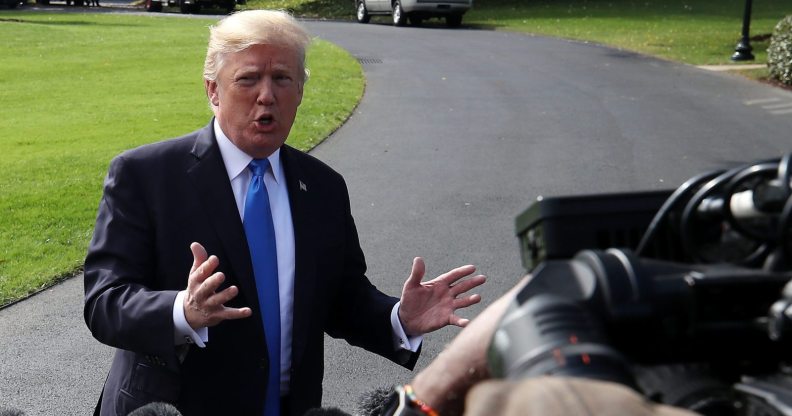
(Getty)
British MPs have accused Donald Trump of “undermining” work on global LGBTI rights by pursuing a regressive agenda.
Since Trump took power in January the US has been accused of rolling back its commitments to global LGBT equality – while Trump’s law chief Jeff Sessions has also pursued an aggressive campaign inside the United States to undermine protections for LGBT employees.
At a debate in the UK’s House of Commons today, politicians from across parties voiced concern at developments in the United States on LGBT issues.
Labour MP Stephen Twigg said: “I want to say something about what is happening in the United States of America. President Trump’s decision to ban transgender people from the US military is an enormous shame, one I hope we can condemn on a cross-party basis.
“I pay tribute to the chairman of the joint chiefs of staff in America for his positive and measured response to President Trump’s actions. I urge our Government to do all they can to press President Trump to think again on his attempt to ban trans people from the US armed forces.
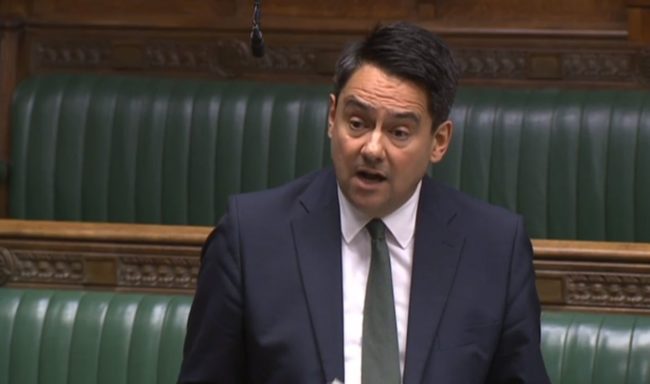
“That, however, is not the only incident of greater homophobia and transphobia in American politics and policy. Recently, the United States voted against a UN Human Rights Council resolution that condemned the use of the death penalty against people because they are LGBT.
“President Obama left a very positive legacy on LGBT. Tragically, President Trump is undoing it.
“That leaves a vacuum in global LGBT rights. I hope that the United Kingdom, working with like-minded countries around the world, will play a leadership role to ensure we do not slip back, but instead move forward to global LGBT equality.”
Conservative MP Luke Graham added: “We in the UK must show international leadership, as it is very important in this issue.
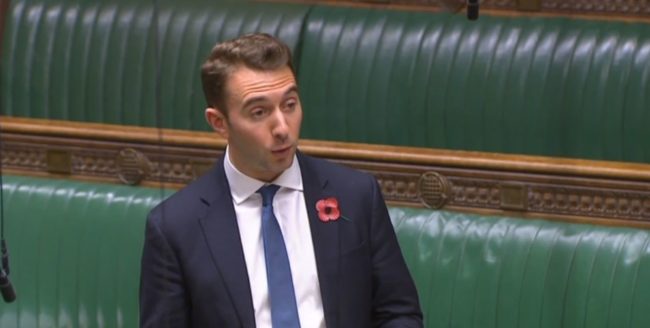
Luke Graham
“The United States was once a beacon for all kinds of individual rights and I would like to share with Members my disappointment, which I am sure they share, at the decisions of the latest American President to ban further recruitment of trans soldiers and to deny the funding of certain medical treatments for those soldiers.
“If someone is brave enough to fight for their country, their country should be brave enough to fight for them.”
The Scottish National Party’s Hannah Bardell added: “[Luke Graham] referred to President Trump’s abhorrent stance on transgender people in the army.
“The restoration of the military ban on transgender people is just another regressive and divisive step that he has made, and it is good to see the UK Government standing up to it.
“Perhaps President Trump could take inspiration from former President Jimmy Carter, who famously said: ‘America did not invent human rights. In a very real sense human rights invented America’.
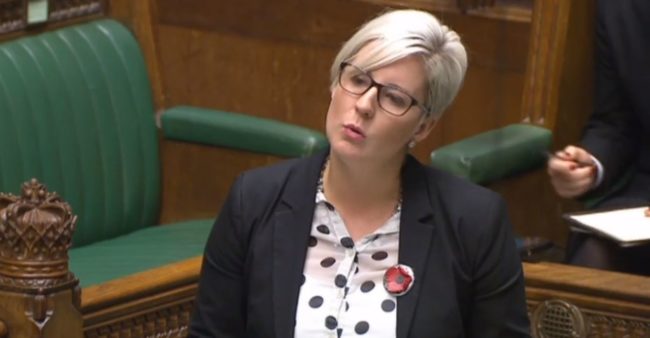
Hannah Bardell
Trump’s Attorney General Jeff Sessions, a hardline opponent of LGBT rights, has worked over the past few weeks to undermine protections for LGBT people across the federal government, in a series of decisions reversing Obama administration guidance.
He issued a directive earlier this month protecting “the right to perform or abstain from performing certain physical acts in accordance with one’s beliefs”, granting an unlimited license to discriminate against LGBT people based on religion.
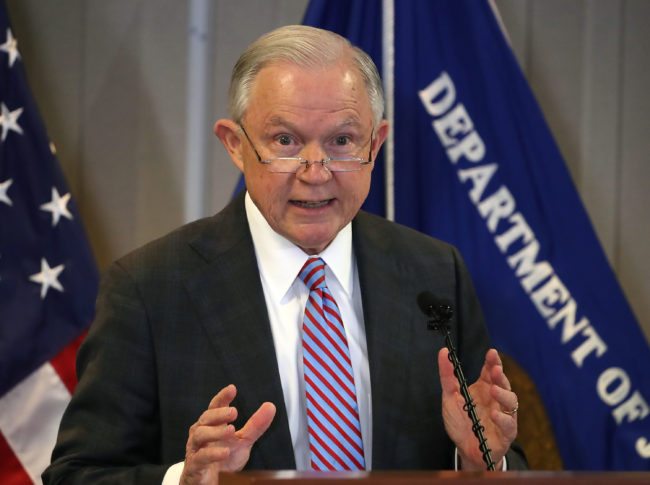
Attorney General Jeff Sessions (Getty)
Under his leadership, the Justice Department has rolled back civil rights protections for transgender people, and has also made an uninvited intervention into a discrimination case this year to argue against discrimination protections for gay employees.
The US has also backed away from global efforts to protect LGBT rights, voting against a UN motion that opposed the use of the death penalty for LGBT people and in other frivolous cases.
The US sparked anger when it sided with the Egypt, Saudia Arabia and Iraq in voting against a measure at the United Nations Human Rights Council that condemned the imposition of the death penalty for homosexuality.
The motion, which passed despite the US opposition, condemned the use of the death penalty “arbitrarily or in a discriminatory manner”, including for homosexuality.
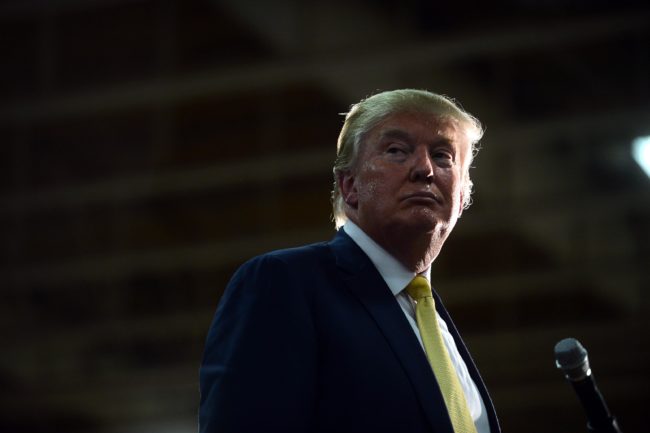
(Getty)
It called for the death penalty to be banned “as a sanction for specific forms of conduct, such as apostasy, blasphemy, adultery and consensual same-sex relations”, as well as criticising its use on minors, mentally ill people and pregnant women.
UN Ambassador Nikki Haley, who was appointed by Donald Trump, has defended herself amid the row, claiming that it was long-standing US policy to vote against measures relating to the death penalty.
She tweeted: “Fact: There was NO vote by USUN that supported the death penalty for gay people. We have always fought for justice for the LGBT community.
“Fact: The vote that took place in Geneva is the same US vote that took place under the Obama admin. It was not a vote against LGBT #Fact”
Though the UN did vote on a measure on the death penalty in 2014, during Obama’s term of office, it contained no such measure relating to LGBT people.
The vote last week was the first time that condeming the death penalty for homosexuality had been part of a Human Rights Council motion.
In addition, the US didn’t cast “the same vote” under Obama on the motion incorrectly identified by Haley.
The US abstained on the 2014 motion, while in 2017 it cast a vote against.
Elsewhere in the Commons debate, the UK was urged to address the Colonial legacy of anti-LGBT laws.
Tory MP Nick Herbert said: “It is sometimes suggested that the UK may be guilty of some kind of neo-colonialism by seeking to impose our views on countries in the same way as we did in the past. It is true that 40 of the 53 member states of the Commonwealth criminalised same-sex activity using legislation inherited from the British empire.
“I would argue that our history gives us a special responsibility to atone for the measures that we introduced, and to act.
“That view is shared by the Prime Minister, who—I am delighted to say—said last week at the PinkNews awards: ‘On the world stage, the Government are standing up for LGBT rights, and challenging at the highest level those governments which allow or inflict discrimination or abuse. The anti-LGBT laws which remain in some Commonwealth countries are a legacy of Britain’s Colonial past, so the UK government has a special responsibility to help change hearts and minds. We will ensure these important issues are discussed at the Commonwealth Heads of Government Meeting, which we are hosting in London next April.’
“That is immensely welcome.
“Only this week, the Commonwealth Equality Network of activists and non-governmental organisations is meeting in Malta to discuss how to reverse the oppression of gay people in too many Commonwealth countries. The stand that the Prime Minister has taken and the Government will take at CHOGM next year is very important.
“After all, what many of these countries are doing is in breach of the Commonwealth charter itself. Indeed, outside the Commonwealth, every country has signed up to the United Nations declaration of human rights—rights that guarantee liberty, freedom of expression and freedom from torture and oppression.
“That is why it is so important that we continue to support campaigns run by United Nations institutions, such as the Free & Equal campaign, as well as other multinational initiatives, such as the Equal Rights Coalition, which was launched last year with UK Government support. It now incorporates 29 Governments, who co-operate and share information, but it needs the continuing and active support of the UK Government.
“I would argue that the UK Government, who have done a great deal in this area, can do much more, and I welcome the Prime Minister’s commitment to a high-level challenge.”

